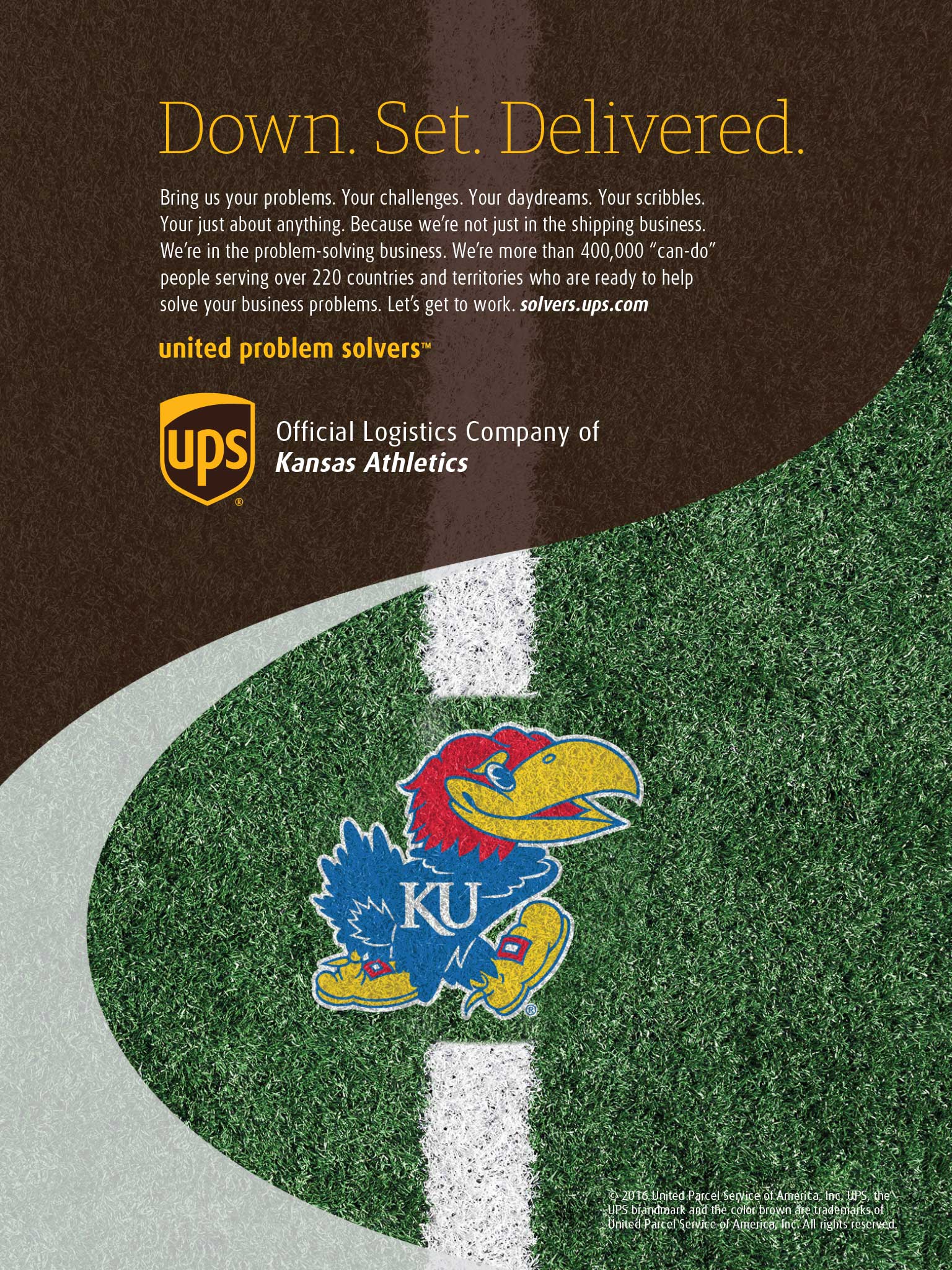RCW: Long Hair & Hustle: The Rudy Karre Story
Just mentioning the word “family” is enough to bring an ear-to-ear smile to the face of Rudy Karre.
Karre’s parents, Rudy Sr., and Jacki, instilled a strong sense of self-worth in Rudy and his younger sister, Lexi. From the beginning, the couple’s message to their children was to be who you are and don’t ever shy away from that.
“The one thing my parents really taught my sister and I was to be yourself and don’t let people judge you or change who you are,” Karre said, as he used his fingers to comb the long blond hair billowing out of the back of his Jayhawk baseball cap. “What you want to do, or what you want to wear, whatever it is, they want you to be you, and create your own image, instead of letting someone create it for you.”
“Tough guy, shaggy hair, having fun” is Karre’s self-proclaimed image, and no one will dispute that, especially not Kansas baseball head coach Ritch Price. Price will add one more quality to the list, though – great teammate.
Price’s lasting impression of his sophomore outfielder came on a trip to watch Karre’s team play in the Arizona High School 6A State Championship game in the Peoria, Arizona, native’s senior season. Tearing a ligament in his elbow, which would later require Tommy John surgery to repair, while pitching in the semifinal game, Karre was relegated to being the designated hitter in his final game of his prep career.

While his team was warming up, Karre, who wasn’t able to throw because of the elbow injury, walked down the outfield line and gave every player on the team, including the entire junior varsity team that made the trip, a hug. In that moment, Price knew he had a great kid joining his squad.
“He’s fun, man,” Price said of his sophomore outfielder. “He’s got what I call ‘Southern California Swagger.’ He’s just cool in everything he does. He is the kind of guy we like and I wanted him to be in the program.”
Karre is the type of guy that dances to the beat of his own drum, exactly like his parents taught him, but even that was difficult to handle for his parents sometimes, especially Jacki when it came to her son’s flowing mane.
“Growing up, he always had a tight haircut, it was lined up, short and clean, and that was always the look,” Jacki reminisced. “When I was able to control his look, so to speak, I loved that, but I can’t eat my own words. I couldn’t sit there, telling him to be an individual and be himself and be confident in who he is, and not let him have long hair.”
Realizing her efforts to keep her son’s hair the way she liked was against her moral code, Jacki knew that she had to let him do what he wanted with his hair, even if that meant watching her son continuously dye his hair different colors, including black and platinum blond. She finally came around to his crazy hair choices late in his high school years.
“He needed to be comfortable and do his own thing, so when his hair started growing, yes, I have to admit it, it was tough,” Jacki said. “I eventually came around though. I think it was his senior year, he had a mullet and he totally rocked it, and I grew to like it because it so fit his personality.”
While visually the long hair may be one of Karre’s most defining traits, those who know him closely know that toughness is his most powerful virtue.
Karre has had his share of bumps in the road in his relatively short collegiate career, but in his sophomore campaign, he’s not letting anything get in his way. Especially not after missing the majority of his freshman year with different problems, including a season-ending shoulder injury just 26 games into the 2016 season.
“I don’t like being passive or soft, it’s just not how I play,” Karre said. “I like to go get stuff, I like to be the best I can be and that’s something I take into each game.”
Karre admits missing most of his freshman year was difficult, but says it’s even more reason for grinding through the minor bumps and bruises of this season.
“Last year was tough,” Karre said. “I came to Kansas with the Tommy John injury and had to miss all of fall ball. Finally, being able to play at the beginning of the season was awesome, then, all of a sudden, the shoulder injury happened and I had to sit out the rest of the season. Right now, I’m not going to let anything stop me. I am going to continue to do what I do. I’m going to be on that field no matter what.”
What Karre does, and has come to be known for, is crashing into outfield walls and dismantling them, trying to make big plays. He has also become well-known for getting hit by pitches. His 25 marks the Kansas single season all-time record, topping Casie Lytle’s 22 in 2010.
All of these things come with their share of lumps and bruises, but those aren’t enough to keep Karre off the field. The sophomore has played and started in all 49 games for the Jayhawks this season.

“His on-base percentage is up over .420 from the leadoff spot, which is just phenomenal,” Price said. “Part of the reason we are playing so good now is he is playing every day. He missed the summer and fall rehabbing that shoulder, so having him playing is huge for us. He is a special talent.”
Karre’s stat line has been impressive thus far in his second year in the Crimson and Blue, posting nine doubles, two home runs, 23 RBIs and 28 walks to go with his 21 hit by pitches, but it’s the stats that aren’t charted where he arguably makes the biggest difference on the team.
“He doesn’t know how to play any other way than all-out, all the time,” Price said. “We try to get him to slide feet-first because we don’t want him re-injuring that shoulder, but we can’t get him to do it, it’s just not his mentality. He made a play at Grand Canyon earlier this season where he smashed into the wall and went down. When we got out there to check on him, he was out cold. He knocked himself out, that’s how hard he was going. I love his energy level, his enthusiasm, his passion for the game.”
All of the outfield wall encounters and fastballs to the rib cage don’t hold a candle to the scare Karre and his family faced when he was a seventh grader.
“That day was life changing,” Jacki said. “It was February 4, 2010, when he had a seizure in the middle of the night. His sister actually heard him and she came in to get me. I ran into his room. Everything is so vivid in my memory because that day was so life changing. He had blood coming from his mouth. I called 911 because I wasn’t able to wake him up. The paramedics came and he eventually woke up, but his pupils were dilated, he wasn’t really responsive. I had no idea what was going on.”
A trip in an ambulance to Arrowhead Hospital in Glendale, Arizona, hoped to give the Karres an answer as to what was wrong with their son, but after a round of standard tests to ensure it wasn’t a drug-related accident, another ambulance ride ensued, this time a 53-mile drive to Children’s Mercy of Phoenix.
“It took a little while to get the ball rolling,” Jacki recalled. “They started doing all of the tests, the MRI, the EKG. He kept having these major Grand mal seizures. It was terrifying to watch your son go through that and not be able to fix it.”
All-told, the family was with Karre for a week in the hospital. Doctors started him on seizure medication and things began to look better, and finally a diagnosis was given – cortical dysplasia.
Cortical dysplasia is a disorder present from birth where neurons in an area of the brain failed to migrate into the proper formation in the womb and is the most common cause of epilepsy.
With the diagnosis handed down and a medication plan that helped things get back to normal for Karre, he was released from the hospital and true to form, he was back on the diamond three days later.
Karre’s condition made the already tough situation of a mother leaving her first-born at college tougher. Jacki, like many moms do, worried about her son in the weeks and moments leading up to him leaving the nest for his new home in Lawrence. Knowing that one of the biggest triggers of Karre’s epilepsy is stress, thoughts flooded her mind wondering if her son would be safe.
“When we were setting up his apartment in Jayhawk Towers, it was one of the hardest things I ever had to do,” she said. “I mean, it’s college, he’s in a different state, he’s far away from home, he’s living on his own. Will he take his medication? All of these things were running through my mind.”
One soothing factor for Jacki and the family was knowing that Karre would be rooming with a familiar face, fellow freshman and Arizona native Devin Foyle.
Foyle and Karre grew up playing baseball against and with each other, coming up the ranks of the Arizona scene, all the way back to the age of 10.
A crash course from Jacki on move-in day left Foyle feeling somewhat prepared for Karre’s seizures.
“She told me what to do when it does happen, hold him up, all of that stuff,” Foyle said. “The first one, I didn’t know what to expect. Rudy told me in the beginning they usually weren’t very bad, but if they were to give him a specific medication. Of course, the first one he experienced when I was around was a really bad one. I tried to just keep calm and do everything his mom said to do. It was really nerve-wracking, but it was all in the moment, so more after-the-fact I was nervous.”
Despite the initial jump into college life, Karre has been able to keep his stress level relatively low, helping to lower his likelihood of having a seizure. One thing that has helped him do so is the final piece of his three-piece puzzle – having fun.
“If you’re not having fun, you’re going to dig yourself in a hole,” Karre said. “That hit me in the middle of the season this year. I started letting things get to my head. One thing that really helped me was after a game, something just popped into my head that my dad always says. He always says, ‘Look yourself in the mirror and know who you are.’ After that, I started having fun again and things changed for me.”
There’s no denying the things that have helped shape Karre into the man he is today – his family, his medical scare and baseball, but the seventh grader being wheeled out of the hospital after a week-long stint of tests couldn’t help but look up at his mom and ask, “Why me?”
“I said, ‘Son, God has a big plan for you,'” Jacki recalled. “‘You’re strong, you’re a role model, you are going to get through this. You are going to turn this into something positive.’
“I think there is a reason it all happened to him,” she continued. “He is a great example of not giving up and rising to the occasion. He didn’t stop living his life, he continued doing what he loves. How inspirational is that?”


